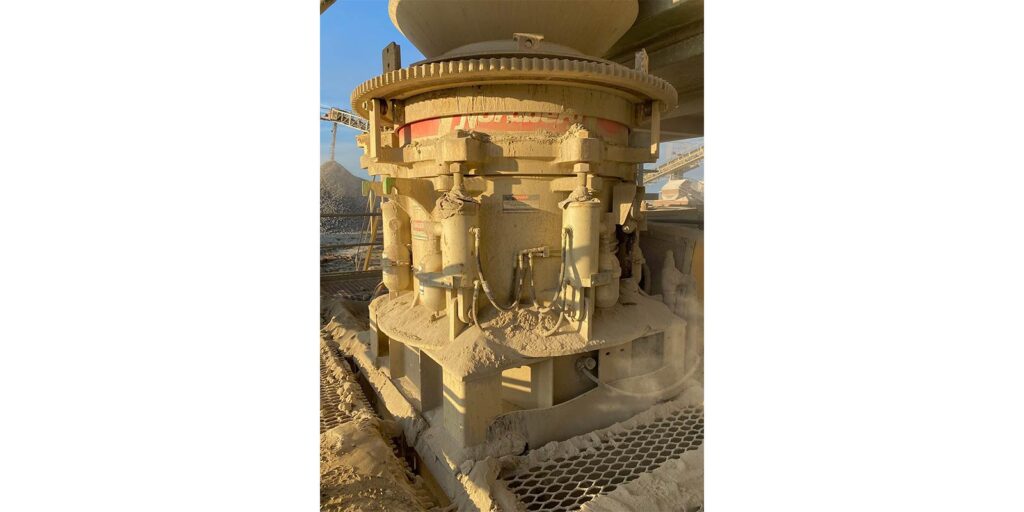Types Of Crushers To Use During The Primary Crushing Stage
When it comes to crushing rocks, there are a variety of different methods that can be employed. Each has its own advantages and disadvantages, and each is better suited for different types of rock. Here, we take a look at the three most common types of crushers used during the primary stage: jaw crushers, hammer crushers, gyratory crushers, and cone crushers.
The Primary Rock Crushing Stage
The primary crushing stage is the first step in the rock crushing process. At this point, large rocks are reduced to smaller rocks by a crusher. The primary crushing stage is important because it prepares the rocks for further processing. By reducing the size of the rocks, the equipment required for the next step can handle smaller rocks more efficiently. This saves time and money during the processing stages.
The primary stage of rock crushing is important because it sets the tone for the rest of the process. If the wrong equipment is used, it can result in a lot of wasted time and money. That’s why it’s important to use a crusher that is suited for the type of rock you are dealing with.
For example, if you are dealing with softer rock, such as limestone, you would want to use a cone crusher. These types of crushers are able to break down the rocks more easily. However, if you are working with harder rock, such as granite, you would want to use a hammer mill or a jaw crusher. These types of crushers are able to break down tougher rocks more effectively.
Types of Primary Stage Rock Crushers
There are several types of crushers that can be used in the primary crushing stage, including jaw crushers, gyratory crushers, and cone crushers.
Jaw crushers
Jaw crushers are most commonly used during the primary crushing stage. They are ideal for smashing large, hard rocks. Jaw crushers are a popular choice for this task because they can handle large rocks and produce a very uniform product. The crushed rocks are then typically screened to remove any smaller particles before they are sent to other stages in the processing plant.
Advantages:
- Jaw crushers are typically very reliable due to their simple design.
- They are also quite efficient at crushing material, meaning that they save on energy costs in the long run.
Disadvantages:
- Jaw crushers can sometimes create too much dust in the work environment, which can be a health hazard for some workers.
Cone Crushers
Cone crushers are commonly used during the primary crushing stage and have a large cone-shaped crushing head that is lowered onto the ore, breaking it into smaller pieces. Additionally, they are typically used when there is a need to break down larger rocks into smaller pieces.
Cone crushers are considered by many to be the best type of crusher to use in the primary stage. They are able to crush a wide variety of materials, and they have a large crushing surface that helps to break down rocks quickly. Moreover, cone crushers have a hydraulic system that allows them to be adjusted easily, which helps to ensure that the rocks are crushed evenly.
Advantages:
- Cone crushers can handle harder rocks than jaw crushers.
- They are able to produce a more uniform size of the product.
Disadvantages:
- They are more expensive than jaw crushers.
- They require more maintenance.
Hammer crushers
Hammer crushers are the most common and widely used type in the primary rock crushing stage. They can crush various large types of rocks, including limestone, coal, and other types of minerals. Hammer crushers also have a high ratio of reduction and can easily crush large lumps of material.
Hammer crushers are ideal for smaller rocks that need to be broken down into smaller pieces and work by smashing the rocks with hammers, breaking them down into smaller pieces. These crushers are also sometimes used in the secondary stage to help break down the contents of a jaw crusher even further.
Advantages of hammer crushers include:
- They are able to crush hard materials.
- They are able to crush a variety of materials.
Disadvantages of hammer crushers include:
- They can be expensive.
- They can be difficult to operate.
Gyratory Crushers
A gyratory crusher is a large, cone-shaped machine that is used to crush rock in the primary crushing stage. Gyratory crushers are similar to cone crushers, but operate through a unique mechanism. These machines work by using a large cone-shaped rotor that spins at high speeds. The rocks are fed into the crusher and are crushed as they pass between the rotor and the stationary concave. The crushed rocks then exit the crusher through the discharge opening.
Advantages of gyratory crushers include:
- Ability to handle large pieces of rock
- High production rate
Disadvantages of gyratory crushers include:
- Can be expensive to purchase and operate
- They can require a lot of maintenance and be difficult to repair.
How to Choose the Right Crusher for Your Unique Needs
Rock crushers come in many varieties, and companies need to find the right one for their unique needs. Each type of crusher has its own strengths and weaknesses, so it is important to carefully consider the materials to be crushed, as well as the size and shape of the rocks.
By understanding the different options available, you can select the perfect primary stage crusher for your next project. To find the right type of crusher, reach out to Mellott’s team of experts today at 855.554.1606.

